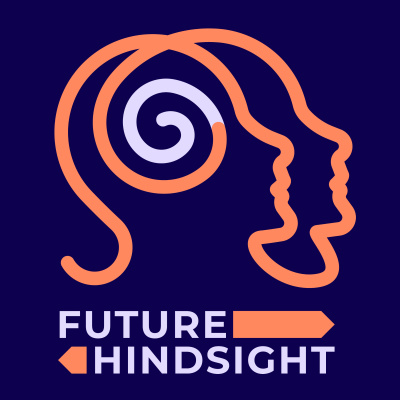Synopsis
Exploring the intersection of civic engagement and civil discourse.
Episodes
-
Building Power Online: Alice Marwick
09/10/2020 Duration: 29minHashtag Activism Black Lives Matter is the epitome of ‘hashtag activism.’ #BLM is a native social media activist movement that started on the internet and builds support for itself there. #BLM combines traditional protest with online activism, allowing people to express support on social media without necessarily going to a protest. This has proven to reveal wide-spread support for #BLM, amplifying and mainstreaming the group’s cause. Low overhead actions like retweets, Instagram stories, and Facebook posts helped the movement grow meaningfully. Politicians on Social Media Lawmakers are increasingly turning to social media as a campaign strategy. The most successful congressmembers, like Alexandria Ocasio-Cortez, are able to humanize themselves, put forth policies, connect with constituents, and build a broader base of support. Others, such as Democratic presidential candidate Joe Biden, have struggled to gain a solid footing online. The COVID-19 pandemic has intensified the need for a powerful social media p
-
Digital Labor Organizing: Jess Kutch
02/10/2020 Duration: 33minDemocracy at Work Our work lives are an important place to practice democracy. Union members learn negotiation and problem solving skills to determine wages and working conditions. They have a voice when voting on a contract. The decline in union participation coincides with the decline in American civic life. Promoting more workplace democracy also increases civic engagement in America. Digital Labor Organizing Coworker.org offers digital tools to help non-union workers mobilize around the country. Digital organizing has successfully won wage increases, scheduling reform, and parental leave benefits. Digital advocacy is meant to work in tandem with more established trade unions and regulatory bodies. Organized labor has a long history of experimenting with different paths to success, and digital organizing represents an exciting new chapter. Worker Voice Workers should have a say in their working conditions, industry standards, mechanisms for whistleblowing, and in negotiating their wages. Making worker voic
-
Civics Club: Adam Cohen
26/09/2020 Duration: 06minWondering what being a member of our Civics Club is like on Patreon? Well, here’s a free look at our bonus content from our talk this week with Adam Cohen! Each week we take time to ask our guests personal questions about their involvement with democracy, why they’re so engaged, and maybe even who inspired them. The questions change every week, so make sure to join The Civics Club so you never miss another round of bonus questions.
-
Supreme Inequality: Adam Cohen
25/09/2020 Duration: 32minSupreme Court’s Agenda Although we are taught to believe the Supreme Court is a neutral institution whose primary concern is justice, it is actually an extremely powerful legal body with its own agenda. For the last 50 years, that agenda has been staunchly conservative. Instead of functioning as a check on executive and legislative powers, it operates as its own power building machine, often making decisions that favor itself or the conservative lawmakers who put a majority of the justices in power. The Supreme Court is confident in its position and its conservative views, and has no qualms about overruling democratic decisions to keep itself—and conservative lawmakers—in power. Far-Reaching Impacts Decisions made by the Supreme Court have long and far-reaching consequences. On the positive side, single Supreme Court decisions helped desegregate American schools, create due process protections like Miranda Rights, and legalize same-sex marriages. At the same time, the conservative Supreme Court has greatly in
-
Decolonizing America: Nick Tilsen
18/09/2020 Duration: 31minSelf-Determination Self-determination empowers those who are most affected to be in the driver’s seat of policy-making decisions. For example, if an oil company wants to run a pipeline through Indigenous land, Indigenous communities themselves would decide based on their values and the impact on their families, water, air, and land. NDN collective works to restore self-determination through three pillars: defense, development, and decolonization. Decolonization European colonization was a system of white supremacy that annihilated complex Indigenous populations, cultures, languages, beliefs, land, and governing systems. The work of decolonization includes dismantling white supremacist systems of economic extraction and governance; education about the totality of colonial history; and the revitalization of Native languages and ways of being. Reclaiming Indigenous heritage is also an act of healing past traumas from colonization. Land Back A key tenet of self-determination and decolonization is the “land back”
-
Building Civic Power: K. Sabeel Rahman
11/09/2020 Duration: 27minCivic Power Civic power puts communities most impacted by legislative decisions in the drivers’ seat of making public policy. Community members get to have a say in areas like policing, zoning, education, taxation, voting rights, and more. Participatory budgeting creates a structure of representative decision making that is responsive and reflective of the affected communities. This form of civic power exists around the world and can be replicated in the United States on a large scale. Radical Democracy True bottom-up democracy is a radical but simple concept that fully espouses civic power. The representative democracy in the US puts bureaucrats, not affected communities, in control of many aspects of public policy. To achieve true democracy, we need to demand a policy shift in institutions, which creates more power for citizens in the long run. It’s a demand about changing the way policy is made tomorrow, and not just today. An Inclusive and Equitable Society The markers of a society’s success must include
-
State Capture: Alex Hertel-Fernandez
04/09/2020 Duration: 35minCapturing State Legislatures State capture refers to the idea that a set of organizations, businesses, and movements can capture a political office and dictate its agenda, decisions, and resource allocation to benefit their interests. Capturing state legislatures is especially effective because state governments – as opposed to the federal government – have control over significant aspects of our daily lives: taxes, minimum wage, health insurance, and administering elections. The Troika Three powerful conservative organizations, commonly referred to as the troika, work in tandem to capture state legislatures: the American Legislative Exchange Council (ALEC), the State Policy Network (SPN), and Americans for Prosperity (AFP). ALEC works with lawmakers directly to pass legislation it often writes and provides. SPN is a network of think tanks that works outside of government, creating reports, legislative testimony, and polling that champion conservative bills often created by ALEC. AFP operates like a politica
-
Organized Power: Theda Skocpol and Caroline Tervo
28/08/2020 Duration: 33minPolitical Learning In response to the elections of Obama and Trump, grassroots political movements sprung up on the right and the left. Members of these groups demonstrated an eagerness to learn about and understand local and state politics, which is where they are most actively engaged. After the 2016 election, Resist groups used many of the Tea Party movement’s tactics, like writing to law makers, running local candidates, and knocking on doors to get out the vote. Impact on Politics Grassroots movements are highly impactful across the political spectrum, often revitalizing local capacities of both political parties. Resist groups on the left are dominated by women, who are organizing and insisting on a more open and inclusive Democratic Party. Increasing voter turnout has had the strongest impact on both sides. Boosting the margins for the Democratic candidate in a swing state could lead to electoral victory in 2020. Organized Groups Swing Elections Organized groups helped swing the 2016 election. Donald T
-
Energizing Local Politics: Drew Kromer
21/08/2020 Duration: 31minBuilding Precincts Precincts are critical to building local and regional party power. Kromer started Davidson’s Democratic party precinct with only four other people. Once established, they gained political legitimacy as well as access to state and county voter databases. This allowed them to organize and knock on doors, inform their constituents about the candidates who are running, and get out the vote. As a result, Davidson had a higher voter turnout rate than other local towns. Politics Flows Up The road to high-ranking state or federal positions often begins with local offices where only tens or hundreds of votes decide elections. Holding local office serves as validation for a candidate’s run for higher office. The mayor of your small town could become your congressional representative in the next election cycle. Focusing on local politics and seriously opposing bad candidates makes it harder for them to succeed and climb the political ladder. Showing Up We often think of party politics as exclusive clu
-
Politics is for Power: Eitan D. Hersh
14/08/2020 Duration: 31minPolitics Begins with Service Political power starts with service to others. For instance, Russian immigrant and Boston resident Naakh Vysoky began his political career by helping his fellow Russian immigrants gain citizenship and keep their government benefits. He also advocated on their behalf in Washington. Members of his community recognized his leadership and initiative, and began to follow his lead politically. They voted according to his recommendations. By building a voting bloc, Naakh created lasting political power to make government more responsive to his community. Politics Solves Problems Politics is about working together to solve problems. Uniting like-minded citizens through political organizing builds political power, which can be used to ask the government to help resolve the particular issues facing communities. Naakh Vysoky created a voting bloc of more than 1,000, and his precinct voted at three times the state average. When he called the governor’s office, the governor called back. The po
-
Introducing the Future Hindsight Civics Club
07/08/2020 Duration: 01minIntroducing the Civics Club! Signup at www.patreon.com/futurehindsight today! By supporting Future Hindsight, you're helping this independent podcast deliver the information you need every week to stay civically engaged. You'll also get bonus content, transcripts, early access to the show, and personal access Future Hindsight team—all for the price of a latte per month. We look forward to your support, and thanks again for listening!
-
Sexual Citizens: Jennifer S. Hirsch & Shamus Khan
23/07/2020 Duration: 35minSexual Citizenship The concept of sexual citizenship asserts that people have the right to sexual self-determination, including young people. Recognizing young people’s sexual citizenship prepares them to both say no and yes, as well as to be able to hear other people when they do or don’t want to have sex. It also recognizes their fundamental humanity. Establishing sexual citizenship and autonomy for young people is a critical step in preventing campus sexual assault and promoting relationships based on trust, kindness, and love. Power and Precarity Meaningful action against sexual assault in its many forms must be grounded in a general project of equality because experiences of assault are fundamentally about power and precarity. Studies show young people who have difficulty paying for basic needs are at a significantly elevated risk of sexual assault. The highest rates of sexual assault reports come from LGBTQ communities because of systemic invalidation of queer identities. Racism, gender discrimination,
-
Surveillance Capitalism: Shoshana Zuboff
17/07/2020 Duration: 42minSurveillance Capitalism Surveillance Capitalism is the dominant economic logic in our world today. It claims private human experience for the marketplace and turns it into a commodity. Vast amounts of personal data are necessary -- often harvested without our knowledge or consent –- in order to predict future behavior. Surveillance capitalists create certainties for companies by modifying people's behavior. Instrumentarian Power Instrumentarianism seeks to modify, predict, monetize, and control human behavior through the instruments of surveillance capitalism, our digital devices. Having mined all of our data, instrumentarians can tune and herd users into specific actions through triggers and subliminal messaging. It is ultimately a political project intended to install computational governance instead of democratic governance. Protecting Your Privacy A myriad of programs and apps can block tracking and scramble your location, making your behavioral data less accessible or even inaccessible. Since instrumenta
-
Canvassing with Love: David Fleischer
10/07/2020 Duration: 30minAfter listening to this episode, try deep canvassing yourself! Click HERE to read the step-by-step guide. We'd love to compare notes and see how you did. After you've canvassed, tell us about your experience by leaving a message at (929) 262-0752. Thank you! Deep Canvassing Deep canvassing was developed to better understand voters in response to California’s Prop 8 legislation, which outlawed gay marriage. Sharing personal stories and active listening techniques establish common ground, even among voters with totally different opinions. These kinds of meaningful exchanges lead to constructive, positive dialogue that can change minds and achieve political results at a higher rate than traditional canvassing. How to deep canvass Start with the change you seek. Put together a list of people to talk to. Recruit a buddy. Before the call, think about someone you love and why you love them. On the call, genuinely listen to people and ask meaningful questions based on what they say. Share a personal story with a lo
-
Deconstructing the Alt-Right: Alexandra Minna Stern
03/07/2020 Duration: 31minCulture Informs Politics The Alt-Right believes politics is downstream from culture. They operate in this meta-political sphere where changing American politics must start with changing culture, discourse, and language. The internet allowed the Alt-Right’s ideology to proliferate through memes, in online communities, and finally into mainstream culture. After the 2016 election collapsed the timing between culture and politics, the internet continues to serve as a platform to disseminate their cultural values. Conversely, de-platforming prominent Alt-Right voices like Gavin McInnes and Alex Jones has reduced their ability to gain new adherents. Gateway to Extremism The Proud Boys, McInnes’s group, is a gateway to right-wing extremism. They often claim plausible deniability by saying anti-Semitic or transphobic memes are jokes and using seemingly harmless initiation rituals to lure young white men into their orbit. They attempt to “red-pill” their followers and decry modernity, liberalism, egalitarianism, and f
-
The Roots of Conservative Media: Nicole Hemmer
26/06/2020 Duration: 32minConservative media activism Beginning with the America First Movement, conservative political activists also became conservative media figures. In addition to writing conservative books and hosting radio or television programs, these activists also created civic organizations and worked on political campaigns from Eisenhower to Goldwater and Reagan. Media is an important part of their political activism, and not a separate, objective endeavor. Politics of Ideas Conservatives believe political change starts with ideas. They build political power through spreading and popularizing their ideas through their own media outlets where ideology trumps facts on the ground. Conservative audiences -- primed only to right-wing views -- believe that only their sources are right, both factually and ideologically. Hence, conservative voices became the only ones telling the truth. Epistemological divide We are experiencing an epistemological divide where liberals and conservatives have fundamentally different understandings
-
Political Communication Ethics: Peter Loge
19/06/2020 Duration: 29minEthical Communication Ethical communication involves respect and civil discourse. Taking time to listen to other sides and treating lawmakers with civility are key to a healthy democratic process. Respecting procedures that bolster the institutions of democracy and working together can help us achieve a better America. The truth is click bait The truth is not boring. We can be clever about presenting truth and facts. Presenting the truth in a click bait format—with catchy headlines, good photos, and a listicle—is possible. Ethical communication doesn’t have to be dry, like eating our vegetables. Improving the media The media can and should cover politics in a way that encourages citizens to be engaged participants in a democracy, instead of spectators. Recognizing robust and ethical leadership in our lawmakers will encourage a high bar of communication among all politicians. Supporting substantive reporting through subscriptions is imperative. Find out more: Peter Loge is the founding director of the Project
-
Fact-Checking for Truth: Jon Z. Greenberg
12/06/2020 Duration: 29minWho Gets Fact-Checked? PolitiFact finds statements of “fact” by American politicians that can be verified and are highly visible, or pertinent, to a current national conversation. This is the reason why high-ranking officials such as Members of Congress, Senators, Cabinet members, and the President are at the top of the list. The President gets checked a lot—and fails nearly 70% of the time! The Fact-Checking Process PolitiFact looks for evidence to support that a statement is accurate or less than entirely accurate: scouring independently verifiable information from sources like the Bureaus of Labor Statistics or Economic Analysis; turning to experts in a given field; and also asking the person who made the statement to provide whatever information they used. Once all of the facts have been checked, the rating of the statement is determined on the Truth-O-Meter. It has six ratings in decreasing levels of truthfulness from true to pants on fire. Speaking Truth to Power PolitiFact’s reason to publish is to gi
-
The New Conspiracism: Nancy Rosenblum
05/06/2020 Duration: 30minConspiracism A functional conspiracy theory uses facts and rational arguments to prove that things are not as they seem. Conspiracism is a conspiracy without the theory. Conspiracism takes the form of a bold assertion without any evidence, even fake evidence, to back it up. It’s an assault on common sense. Prominent examples are “climate change is a hoax!” and “the election is rigged!” Conspiracy claims spread quickly because they require no explanation and are impossible to counter. Moreover, they ring “true enough” by playing into an emotional narrative of fear or hatred. When the president engages in conspiracism, such as the press being the enemy of the people, he imposes his reality on the nation, with violent consequences. Dangers of conspiracism One of the most devastating side effects of conspiracism is the delegitimation of democratic institutions, such as the party system. The notion of a loyal opposition party is key to democracy; without it, democracy ceases to exist. Republicans rely heavily on t
-
The Risks of Fake News: Travis I. Trammell & Elisabeth Paté-Cornell
29/05/2020 Duration: 28minViral Model Trammell created a viral disease model to mimic how fake news spreads. People must come in to contact with the fake information in order to be infected, just as with a virus. The more people are exposed, the more it spreads. The research shows that individuals who claim to be online for more than 10 hours a day are more susceptible to fake news. Flattening the curve of false information requires countermeasures on multiple fronts. Counter Measures Fake news is likely here to stay, but it is possible to mitigate its spread and efficacy. France effectively employed a “pre-bunking” strategy in its last presidential election. The government warned citizens that fake news would be coming from Russia, and preemptively distributed factual information to counter false narratives. Other necessary counter measures are aggressively attacking fake accounts (bots), building a reputation system to identify bad actors and reliable sources, educating schoolchildren to be vigilant consumers of the news, and cultiv

































